#32 – Barbarella (1968)
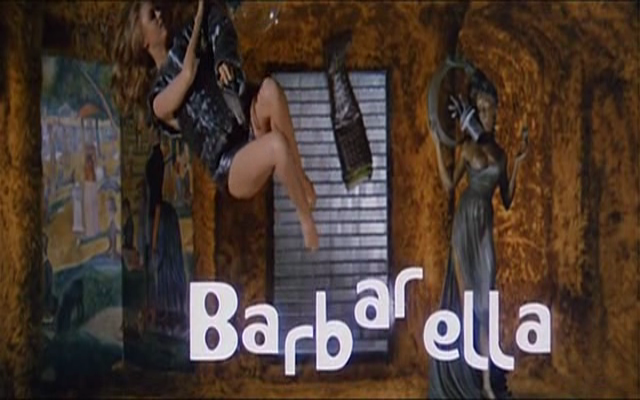
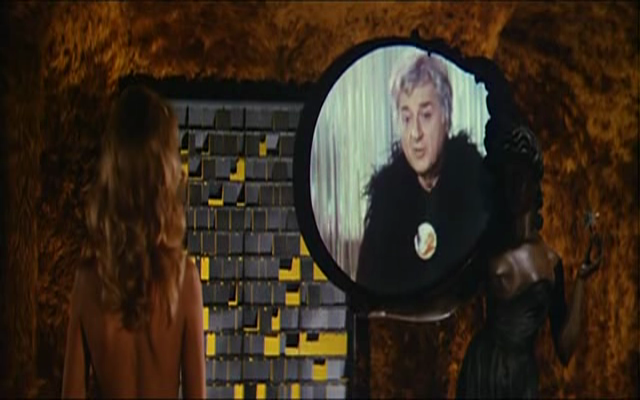
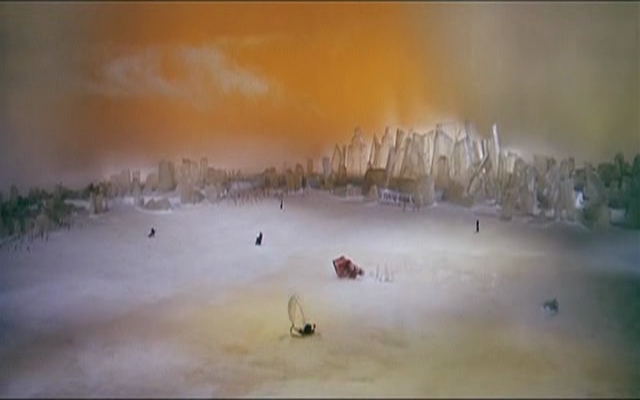
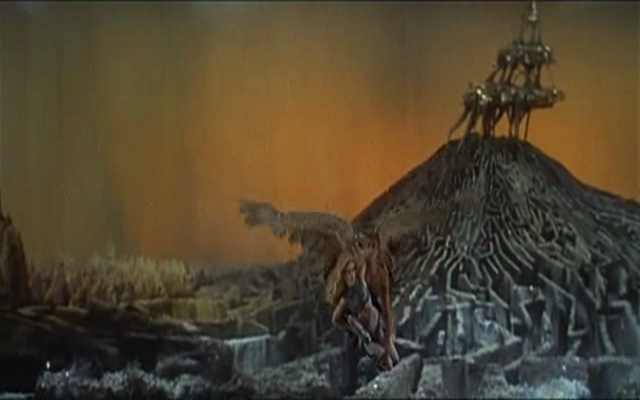
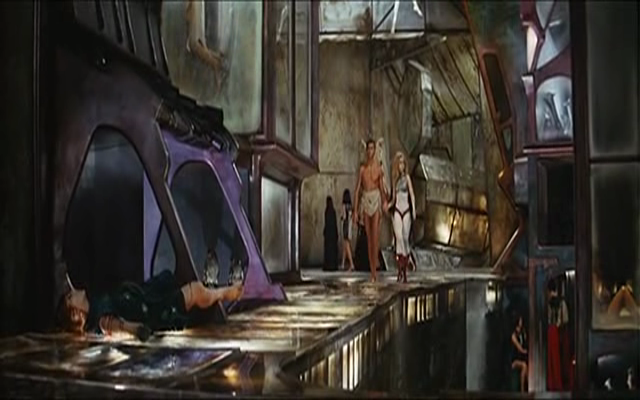
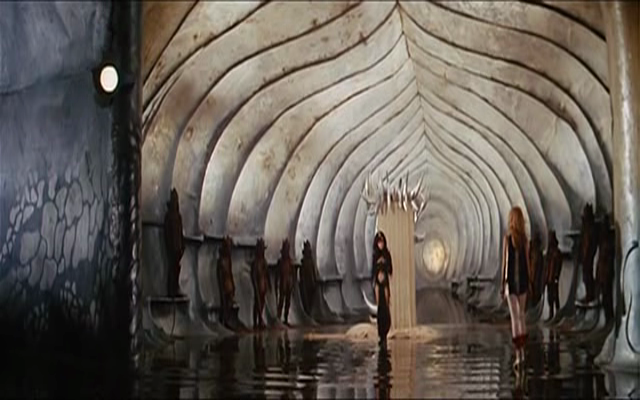
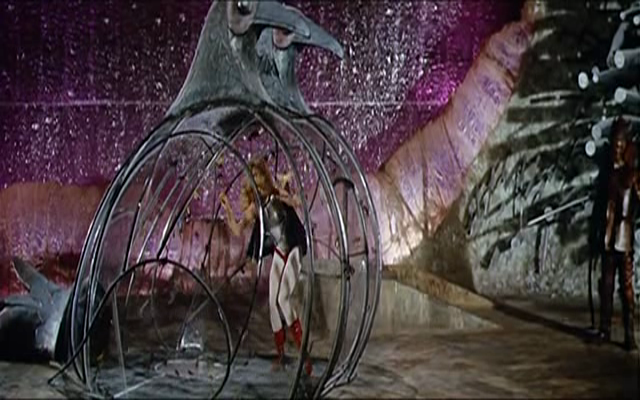
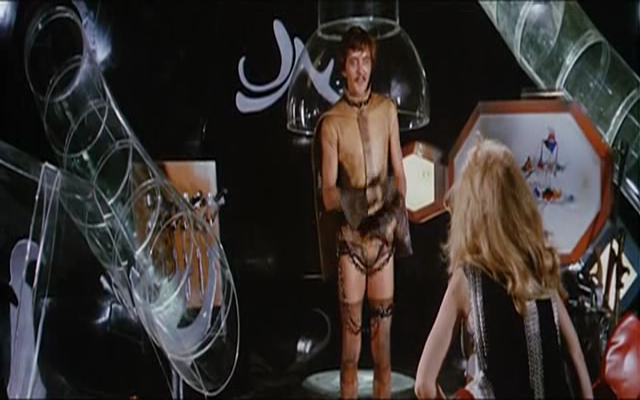
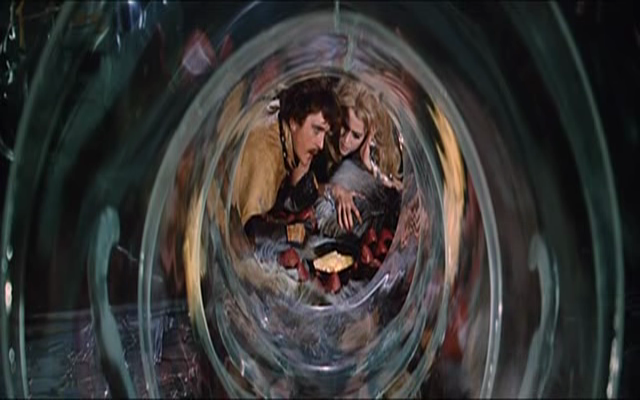
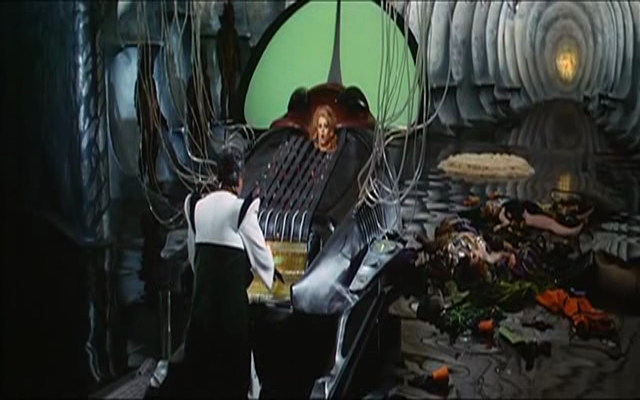
Barbarella (1968)
Film review #32
Director: Roger Vadim
1960’s science-fiction based on the comic strip of the same name…
SYNOPSIS: Barbarella is contacted on her ship by the president of the Republic of Earth for a top secret mission. She is to retrieve Doctor Durand Durand from the planet Tau Ceti, where he was last seen. Durand has invented a positronic ray, and disappeared in an unknown sector of space. As Earth has been at peace for centuries, weapons are unheard of, and if the positronic ray falls into the wrong hands, it could spell disaster for Earth. As she is on course for the planet though, her ship malfunctions and she crashes on the surface of Tau Ceti…
Barbarella heads out onto the surface, and meets twin girls, who knocker her unconscious and drag her away. When she awakens, she is surrounded by a number of children, who have tied her up and use dolls with razor sharp teeth to bite her. Fortunately, Barbarella is rescued by A huntsman, Mark Hand, who is on the lookout for errant children. She offers to reward him, and he suggests they make love. She is surprised he wants to do it physically, as people of Earth now use pills and psychological analysis instead. She however agrees, and departs from Tau Ceti in her ship, agreeing that sometimes the old ways are the best…
Her ship crashes through the surface of the planet into a labyrinth, badly damaging her ship. She exits her ship and is knocked out by a rock slide, but is rescued by an angel named Pygar. He explains that the labyrinth is where all the people who are cast out of Sogo, the city of night, are forced to live. She is then introduced to Professor Ping, who offers to repair her ship, and suggests she heads for Sogo if she is looking for Durand. Pygar, using his wings gives Barbarella a lift to Sogo. Battling the Great Tyrants black guards along the way, they finally arrive. The two are briefly separated when Barbarella is assaulted by two of the residents. She is saved however, by a one-eyed woman, and Barbarella heads off to search for Pygar.
She finds him and the two try to escape, but find themselves trapped in a strange chamber with an odd liquid beneath the floor. The Concierge, who serves the Great Tyrant who rules Sogo, steps in and takes them away, explaining that the liquid is Mathmos, a demon of sorts that feeds on the negative energy of the people of the city. The two meet the Great Tyrant, who is none other than the woman who rescued Barbarella earlier. Pygar is left to be “crucified” by the Tyrant, and Barbarella is sent to be pecked to death by birds. She is rescued by Dildano, the leader of the resistance, who want to overthrow the tyrant. She offers to thank him by making love, but this time he wants to experience the use of the pill like on Earth. The clumsy Dildano explains that the only time the tyrant is vulnerable is when she is asleep in the Chamber of Dreams, and hands her the invisible key to her lair and sends her on her way.
Barbarella is soon captured by the Concierge again, who traps her in a “pleasure machine”, which will cause her to die by overexposure to pleasure. Barbarella however, being too full of good and pure energy, breaks the machine, and finds out that the Concierge is none other than Durand, who looks a lot older than she was told because of the effects of the Mathmos. He traps Barbarella in the Chamber of Dreams with the Tyrant, so he can proclaim himself ruler of Sogo. His plan is interrupted by Dildano, whose revolutionary forces start to attack, he decides to take them out using his positronic ray. The Tyrant however, releases the Mathmos to destroy Durand and Sogo. She and Barbarella manage to escape by being protected in a focefield apparently generated by Barbarella’s goodness. The two find Pygar and they all fly back towards Barbarella’s ship together.
THOUGHTS/ANALYSIS: This is an odd sort of film. It seems to be somewhat of a parody of science-fiction, with everything being very tongue-in-cheek. It is a very 60’s film; the psychedelic images of the Mathmos throughout the movie, the scene with the not-so-subtle smoking scene of some sort of drug, the use of “love” in direct reference to how “Peace” was used at the time, and also the soundtrack, which sounds very much like a soundtrack you would find in a more “reality-based” movie of the sixties, or in one of the clubs of the time, quite a difference from the spacey soundtracks one is used to…
Perhaps what makes this movie stand out is the use of a female lead role; something you very rarely see in science-fiction, and almost completely unheard of back then. The erotic and suggestive undertones of the movie really need the use of that innocent, good-natured Barbarella though, and had this been a more serious or traditional science-fiction movie, I’m guessing this would have never have even been given approval to be made. There’s plenty of phallic imagery throughout the film too, so you’re never really taking this film too seriously, as it always one step away from being a complete parody of what itself.
Barbarella was a box office and critical failure, not being released in English until nine years after it was released in France and Italy (The film was filmed in France, and the film was filmed in both languages.). Despite this though, I think it is one of the more memorable science-fiction films of that era, as it does something that is very different. It does not really try to overcome the cheap design and props either, it in fact seems to revel in it. To testify to this, it has a small cult following, and a remake has been talked about it on and off for years. I imagine it would be quite difficult to capture the essence of the original movie, as the decade it was produced in provided a very strong context in which this movie could thrive.
Overall, Barbarella isn’t your typical science-fiction from that era, it is something a little different that never takes itself too seriously. It is important to consider the era it was made, as it plays off many of the definitive aspects of the sixties to appeal to that audience. It’s a little “off the radar” in terms of mainstream science-fiction, but this is why it becomes quite a good parody of the more commercial ones, and having a woman in the lead role in this context is quite subversive and risky, really rounding off this very unique film.

